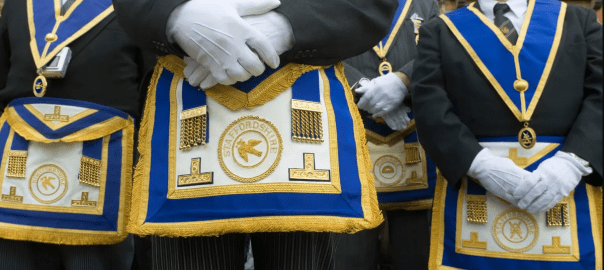Sun, Oct 01 2023 /Religion/ –Multicultural issues can have diverse contradictions, especially when it comes to religion and Freemasonry. Freemasonry is a fraternal organization that is open to men of all faiths, but it is based on a set of universal principles that some religions may find objectionable. For example, Freemasonry teaches that there is a single Supreme Being, but it does not specify which religion is correct. This can be difficult for people from certain religious backgrounds to accept.
If you are a member of a religious family and some of your family members are Freemasons, it is important to be respectful of their beliefs and practices. However, you also have the right to ask questions and to express your own concerns. If your family members are not willing to discuss their involvement in Freemasonry, you may need to seek support from outside sources.
There are a number of support groups available for people who have grown up in families with members who are involved in Freemasonry, secret societies, or cults. These groups can provide a safe space for you to explore your feelings and experiences, and to connect with other people who understand what you are going through.
Here are a few resources that you may find helpful:
Freemasonry Watch: This organization provides information and support to people who are concerned about the impact of Freemasonry on individuals and families.
Cult Awareness Network: This organization provides information and support to people who are concerned about cults and cult involvement.
The Family Freedom Center: This organization provides information and support to people who are concerned about the impact of secret societies on individuals and families.
You can also find support groups online and in your local community. A quick internet search should reveal a number of options.
It is important to remember that you are not alone. There are many people who have grown up in families with members who are involved in Freemasonry, secret societies, or cults. There are also resources available to help you cope with the challenges that this can present.
Here are some tips for addressing family members who are Freemasons and not willing to discuss their involvement:
Choose a time and place where you can have a private conversation.
Let them know that you respect their privacy, but that you are also curious about their involvement in Freemasonry.
Ask open-ended questions and listen carefully to their answers.
Avoid being judgmental or critical.
Be respectful of their beliefs and values, even if you don’t agree with them.
If your family members are not willing to discuss their involvement in Freemasonry, it is important to respect their decision. You can still maintain a relationship with them, even if you don’t fully understand their choices.
If you are struggling to cope with the challenges of growing up in a Freemason family, it is important to reach out for support. You can talk to a therapist, counselor, or other trusted professional. You can also contact the Masonic Family Survivors Network for support from others who have shared similar experiences.
Search related topics
Support group for people who grew up in freemason families
Which of the royal family are Masons?
Who are the Masons family?

